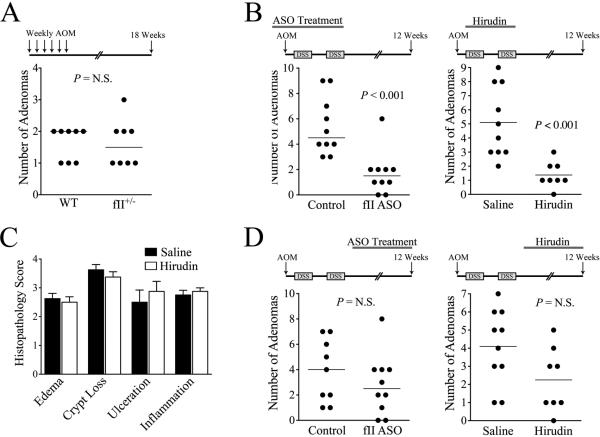Figure 5. Prothrombin supports adenoma formation in CAC primarily through mechanisms dependent on the antecedent inflammatory colitis.
(A) Genetically imposed prothrombin deficiency had no significant impact on the number of colonic adenomas formed following multiple i.p. injections of azoxymethane without DSS exposure. (B) Treatment during the antecedent inflammatory colitis with either a fII-specific ASO at doses that lower prothrombin levels to ~50% of normal or daily i.p. hirudin injections (10 mg/kg/dose) significantly limits adenoma formation following AOM/DSS. (C) Multiparameter histological analyses of colonic tissue harvested from hirudin or saline vehicle treated mice (n = 8 per group) immediately following 7 days of DSS exposure revealed no significant differences in any of the parameters assessed. (P values were not significant for each comparison between saline vehicle and hirudin treated mice.) (D) In contrast to the significant diminution in adenoma formation observed when prothrombin expression or thrombin proteolytic function was targeted during the antecedent DSS challenge, treatment with either fII ASO or hirudin following DSS withdrawal did not have a significant impact on the number of adenomas formed following AOM/DSS challenge.

